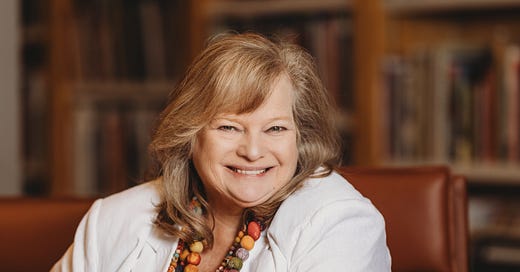Mississippi Native: Belinda Stewart
"Even when there are things you do not like about something, you can still love it. You can love it in ways that help make it better. I love the potential of Mississippi."
What does it mean to call Mississippi home? Why do people choose to leave or live in this weird, wonderful, and sometimes infuriating place? After working for a large architectural firm in North Carolina, Belinda Stewart felt called to return home to Webster County, Mississippi, to focus on her passion for historic preservation and adaptive reuse. She founded Belinda Stewart Architects, PA in 1990 in Eupora, growing her team steadily and taking on historically significant projects such as the Ida B. Wells-Barnett Museum in Holly Springs and the Amzie Moore House in Cleveland. Belinda believes “The energy of a small town has great power to foster creativity.” Below, she shares why she’s firmly rooted in Webster County.
Where are you from?
I am from Webster County, Mississippi—I live in the Village of Walthall and work in Eupora.
Why did you leave Mississippi? Where did you go?
I left Mississippi right after college for a variety of reasons. There were things I didn’t like about Mississippi, and I wanted to go somewhere new and full of opportunities. I thought I wanted to live in a larger place.
I went to North Carolina and worked with a large architectural firm that had a small segment that focused on historic preservation and adaptive reuse. This experience gave me an incredible base of knowledge for this type of work and allowed me to see the good that could come out of the reuse of existing structures. I became active in the local community and discovered that the preservation of existing buildings could make great positive change in a community. These buildings had stories that were important to the community and their preservation allowed those stories to be retained and brought to life.
I’m not sure I understood, or even could see Mississippi before I left. It took leaving Mississippi to be able to begin seeing it—to be able to look back and have a more objective and defined appreciation for it.
Why did you return to Mississippi?
I realized that Mississippi was Home, and it is deeply entrenched in me. It took me about four years to realize that I could go back home and perhaps have a part in creating some of that positive change for our communities. Problems exist everywhere and my calling as an architect gave me a way to be part of helping. After being away for five years, I moved back to my small hometown to start my own business focusing on historic preservation and adaptive reuse. I wasn’t sure that a small town could support an architectural business. That was thirty-four years ago. Our small town is perfect for our firm. We have developed a regional market throughout the Southeast, and we provide much more than architectural services.

When I was living in North Carolina I joined a book club and the first book we read was Wolf Whistle, Lewis Nordan’s fictionalized account of the lynching of Emmett Till. I was blown away that this was the first time I had heard about something so significant that had happened in our area. I had not understood that Mississippi was the epicenter of the civil rights movement. I began reading and researching this history and learning the deeper history of our area, which reinforced my desire to move back home.
We are honored to help restore the places that tell these stories. In the early 1990’s we designed a courthouse annex for Claiborne County in honor of Matt Ross, the first African American to be elected to office in that county in the 20th century. We also have worked in Holly Springs to help them tell Ida B. Wells’s story through work at the Ida B. Wells Museum and Gallery and at Rust College. We continue to work on the hallowed ground of the civil rights movement through planning, fundraising and restoration of the places associated with Emmett Till, and recently with the restoration of Martin Luther King’s church and parsonage in Montgomery, AL.
I love the potential of Mississippi.
Keep reading with a 7-day free trial
Subscribe to Rooted Magazine to keep reading this post and get 7 days of free access to the full post archives.




